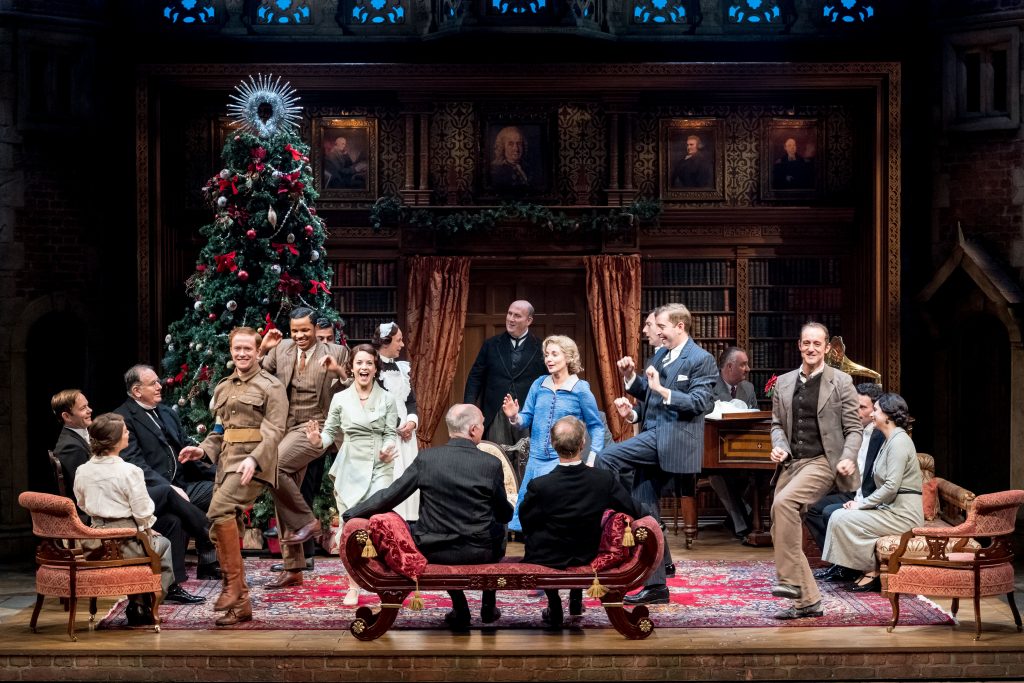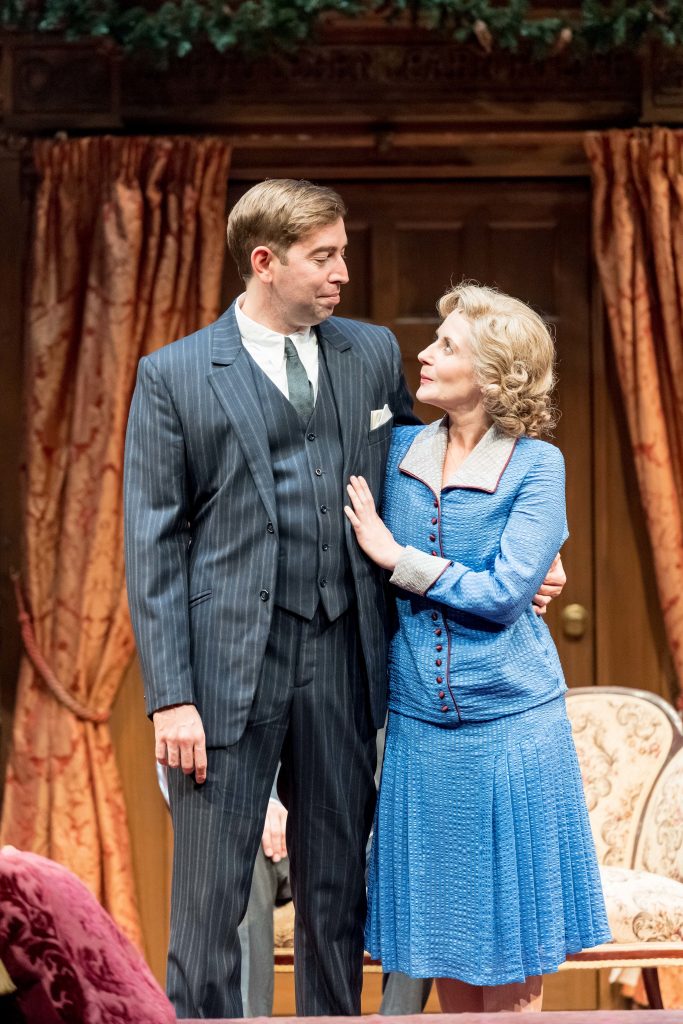There’s something special about seeing a Shakespeare play for the first time – so the chance to see two, on the same day and in linked productions couldn’t be missed. A couple of years ago the Royal Shakespeare Company paired Love’s Labours Lost with Much Ado About Nothing (renamed Love’s Labours Won) in a gorgeous setting amidst the Great War to much acclaim. This year they’ve revived the production, with many of the original cast and have brought it to Chichester Festival Theatre.
At first glance they don’t seem a matching pair of plays but Christopher Luscombe’s productions find the warmth and the sadness inherent in both texts and mine it deeply. The lynchpin, binding the two productions together is Edward Bennett. His knack for sardonic asides and natural charm would be enough to get him by but Bennett has a gift for making Shakespearean dialogue sound completely natural, it sets him out from his co-star Lisa Dillon who, whether as Rosaline or Beatrice delivers lines beautifully, but lacks the former’s effortless air.
Elsewhere there are some excellent character performances, notably from Nick Haverson who makes the most of the comic roles of Costard and Dogberry, particularly with a wonderfully played segment of slapstick in Much Ado’s interrogation scene. John Hodgkinson’s larger-than-life Don Armado is balanced nicely against his straight laced Don Pedro while the ever-reliable Steven Pacey provides both a scholarly, jovial Holofernes and a Leontes whose raw emotional breakdown when his daughter is rejected at the altar provides one of the double bills two big emotional hits.
The other? The incredibly melancholy end point of Loves Labours Lost as the courts of France and Navarre go their separate ways, the women to mourn the death of France’s kings while the men leave to reappear in military uniform, enlisting to fight the Great War. It’s a heavy-hitting end point that beautifully resonates when Don Pedro’s soldiers emerge at the opening of Much Ado, returned from the wars and battle weary. It’s a juxtaposition brought home by Simon Higlett’s beautiful design, the first play is all spring colours, light and airy until the final scenes, whereas the post-war Much Ado is brought home by setting it at Christmas, rich, warm winter colour schemes and a huge Christmas tree (that works for some wonderful set-pieces when Benedick is tricked by Leonato and Claudio).
This then is a glorious pair of productions, as warm and inviting as anything produced in Stratford in many years. While both productions are thoroughly enjoyable by themselves, as a pair they are almost perfect examples of how delightful Shakespeare can be when performed well!
Until October 29th in Chichester and then at the Theatre Royal, Haymarket from December 9th.




Comments
Post a Comment